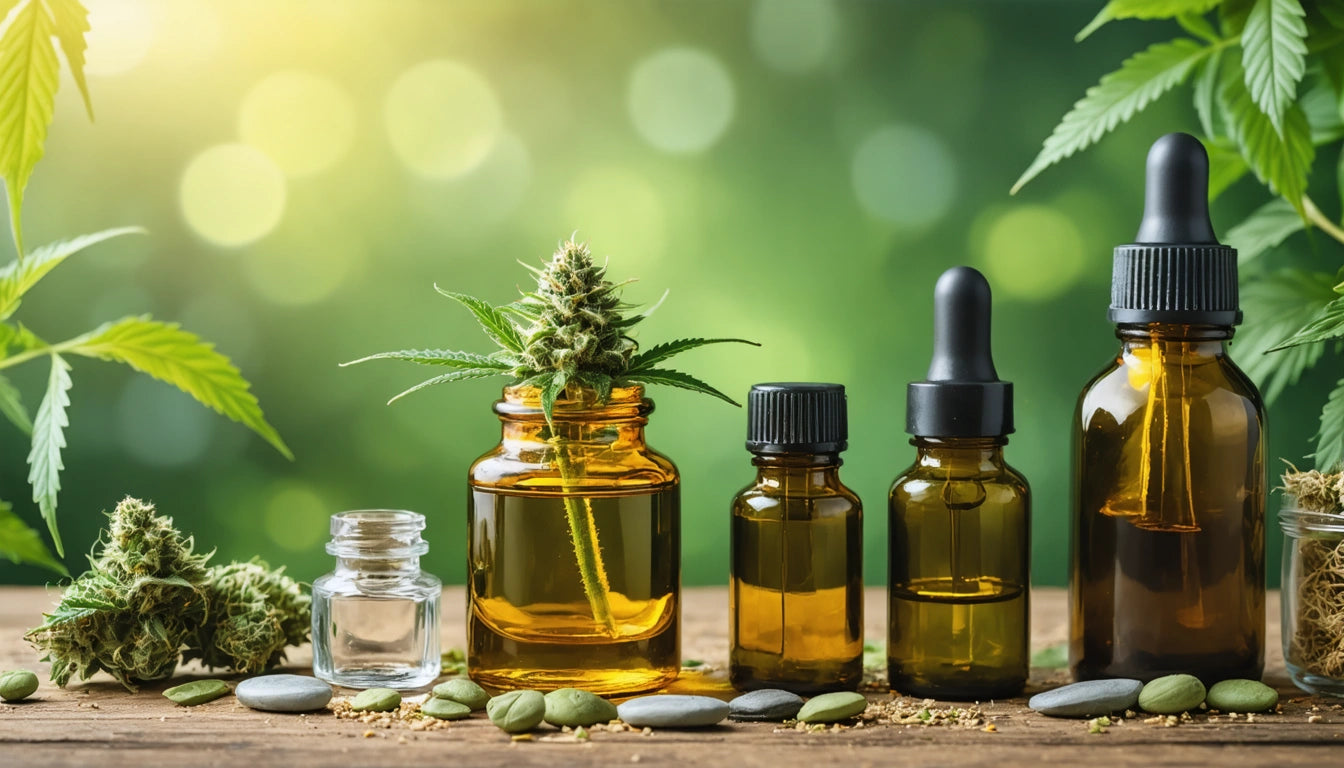Table of Contents
Understanding the Strong and Pervasive Scent of Weed: Causes, Concerns, and Solutions
Cannabis has one of the most recognizable and potent scents in the plant world. Whether you're a consumer, live near users, or simply curious about that distinctive aroma, understanding why weed smells so strong and how to manage its odor can be valuable knowledge. This comprehensive guide explores the science behind cannabis odors, addresses common concerns, and offers practical solutions for odor management.
What Causes the Distinctive Smell of Cannabis
The characteristic smell of cannabis comes primarily from compounds called terpenes. These aromatic oils are produced in the same glands that create cannabinoids like THC and CBD. According to research on cannabis scent profiles, over 200 terpenes have been identified in cannabis, each contributing unique aromatic properties.
The most common terpenes in cannabis include:
- Myrcene: earthy, musky, and herbal
- Limonene: citrusy and fresh
- Pinene: pine-like and sharp
- Caryophyllene: spicy and peppery
- Linalool: floral and lavender-like
These compounds evolved as a defense mechanism to repel predators and attract pollinators. The specific combination of terpenes creates the unique smell profile of different cannabis strains, ranging from skunky and diesel-like to fruity and sweet.
Why Does Weed Smell So Strong and Pervasive
Cannabis odor is particularly potent and persistent for several reasons. First, terpenes are volatile organic compounds that readily evaporate at room temperature, allowing them to travel through air efficiently. Second, many cannabis terpenes contain sulfur compounds similar to those found in skunk spray, which the human nose is extremely sensitive to detecting, even in minute quantities.
As explored in this article on cannabis aromas, the smell becomes particularly intense when cannabis is smoked because heat breaks down the terpenes, releasing their aromatic compounds into the air. Additionally, the combustion process creates new compounds that contribute to the distinctive smell of smoked cannabis.
Common Concerns About Cannabis Odors
Why Do I Smell Weed When There's None Present?
Many people report smelling cannabis when none is present, which can happen for several reasons:
- Phantom smells (phantosmia) can be caused by neurological conditions
- Similar terpenes exist in other plants and products
- Residual odors can linger on clothing or in spaces
- Some environmental pollutants can mimic cannabis scents
Does Weed Smell Stick to Skin and Hair?
Yes, cannabis odor can adhere to skin, hair, and clothing. This happens because the sticky terpene molecules bind to oils on your skin and hair, as well as to fabric fibers. This explains why people often ask, "why does my hair smell like weed" after exposure to cannabis smoke. Regular showering and changing clothes can help eliminate these residual odors.
Health Implications of Cannabis Smell Exposure
A common question is "can smelling weed be harmful?" According to research on secondhand cannabis exposure, simply smelling cannabis is unlikely to cause intoxication or result in a positive drug test. The aromatic compounds you smell are primarily terpenes, not THC.
However, in enclosed spaces with poor ventilation, secondhand smoke can potentially lead to minor THC exposure. Those with respiratory conditions like asthma might experience irritation from heavy cannabis smoke, though this is due to the smoke particles rather than the smell itself.
Effective Odor Management Solutions
For those concerned about cannabis odors in their environment, several effective solutions exist:
Air Purification Systems
HEPA filters combined with activated carbon can remove both particulate matter and odor molecules from the air. These systems are particularly effective in enclosed spaces.
Proper Storage Solutions
Using high-quality storage containers with proper seals can dramatically reduce cannabis odor leakage. Mylar bags with zip-lock closures are particularly effective for containing even the strongest cannabis aromas during storage and transport.
Odor Neutralizers vs. Masking Agents
As detailed in this guide on eliminating cannabis odors, neutralizers like activated charcoal actually bind to odor molecules, while masking agents like incense merely cover up smells temporarily. For persistent odor issues, combining approaches tends to be most effective.
Ventilation Techniques
Proper airflow management can significantly reduce odor concentration. This includes:
- Using exhaust fans vented to the exterior
- Creating negative pressure in consumption areas
- Employing carbon filters in ventilation systems
- Ensuring adequate fresh air exchange
According to research on rapid odor elimination, combining ventilation with neutralizing agents provides the fastest and most thorough odor removal.
Future of Cannabis Odor Control Technology
As cannabis legalization expands, technology for odor management continues to evolve. Newer innovations include terpene-specific molecular traps, advanced oxidation systems, and even genetically modified cannabis strains with reduced odor profiles for discreet consumption.
For consumers and businesses alike, understanding the science of cannabis odors enables more effective management strategies. Whether you're concerned about residential odors, workplace policies, or personal discretion, the growing array of odor control solutions offers increasingly effective options for every situation.
By addressing both the causes of cannabis's distinctive smell and the most effective mitigation strategies, consumers and communities can find balanced approaches to managing this aspect of cannabis use in our evolving social landscape.











Leave a comment
All comments are moderated before being published.
This site is protected by hCaptcha and the hCaptcha Privacy Policy and Terms of Service apply.